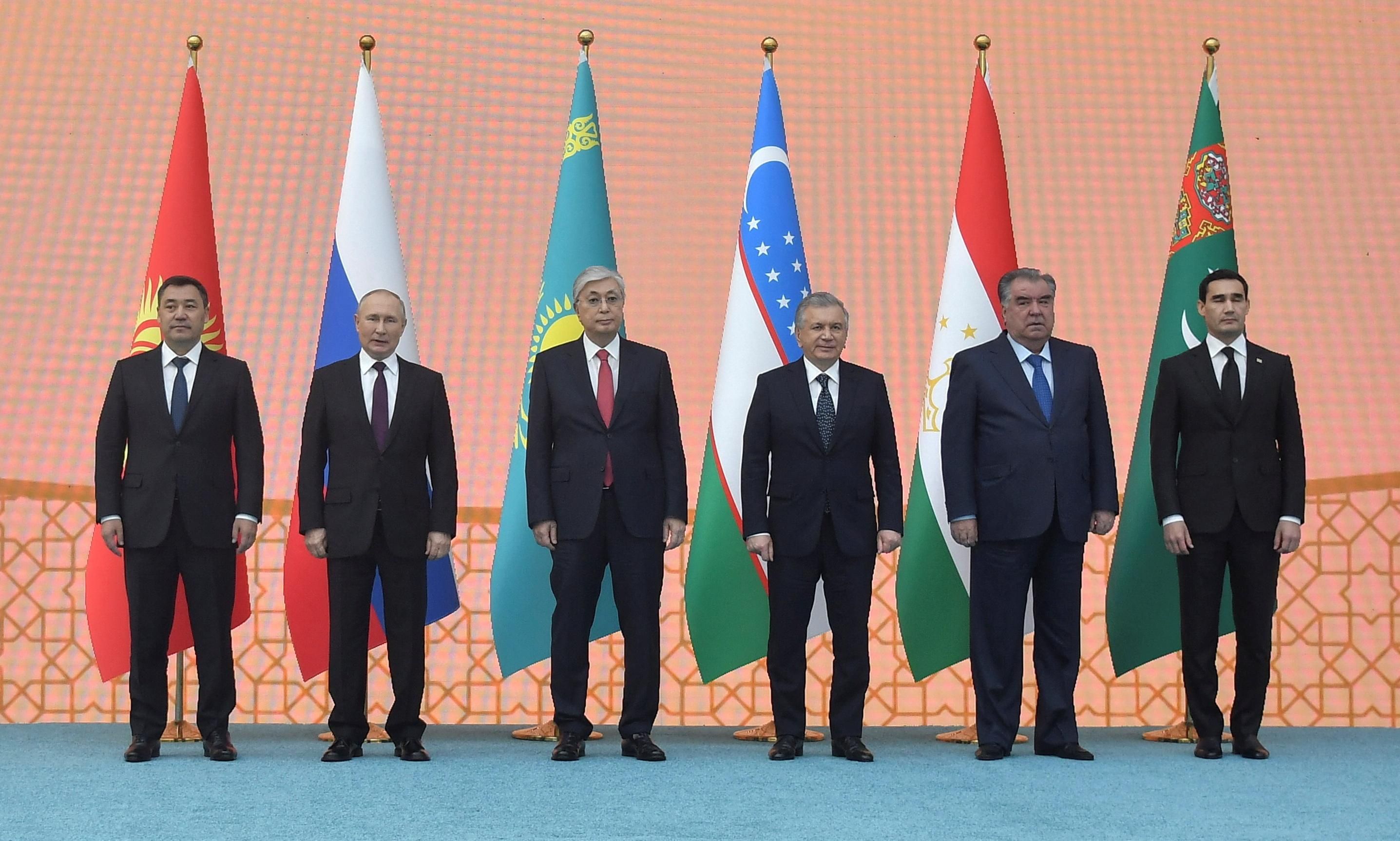Since it invaded Ukraine, Russia hasn't just been making enemies – it’s also been losing friends. Some Central Asian countries – considered part of Russia’s backyard thanks to their Soviet heritage – have begun distancing themselves from Moscow.
Tensions have been building: In October, Tajik President Emomali Rahmon told Vladimir Putin at a summit that his country needs “more respect.” At September’s Shanghai Cooperation Organization conference, Kyrgyz President Sadyr Japarov kept Putin waiting before a meeting. And last week, four of Russia’s treaty allies – Armenia, Kazakhstan, Kyrgyzstan, and Tajikistan — abstained from a vote in the UN General Assembly that demanded Moscow pay war reparations to Ukraine.
“Central Asian Republics have always wanted to be free of Russian influence. Seeing Russia falter in Ukraine, they sense their opportunity,” says Husain Haqqani, director for Central and South Asia at Washington’s Hudson Institute.
Kazakhstan is proving the boldest. Many in the region were treading carefully at first. No one had openly criticized Putin, and Kyrgyzstan and Tajikistan, which depend on Russian troops for security, were particularly quiet. But it was Kazakhstan, the largest Central Asian economy, that took the lead, declaring its support for Ukraine’s territorial integrity. Soon after, Uzbekistan, the second-largest economy in the region, followed suit.
Kazakh President Kassym-Jomart Tokayev has had the top job for a year and was elected Sunday to a seven-year term. He has repeatedly refused to back Russia's invasion, and Astana, the Kazakh capital, has rejected the Russian-manufactured “independence” of the Ukrainian regions of Luhansk and Donetsk.
The signaling hasn’t just been diplomatic. At home, Astana canceled an annual summer parade marking the World War II defeat of the Nazis by the Soviet Red Army, and it banned the "Z" military symbol used by pro-Russian/anti-Ukraine elements.
Most notable, however, was Kazakhstan’s refusal to send troops to Ukraine at Moscow’s request. This was a striking move by Tokayev, whose regime was rescued from a violent uprising in January when Russian troops were airlifted to come to his aid.
Considering Tokayev’s recent moves and new electoral mandate, experts expect the leader of the richest Central Asian country to navigate further away from Moscow. “Kazakhstan, as the largest and most prosperous and influential player in the region, seems to be asserting greater strategic autonomy,” Haqqani says.
But Tokayev also faces a dilemma: Kazakhstan shares the second-largest border on the planet with Russia, an indefensible 4,750 miles. The country also houses the second-largest number of ethnic Russians after Ukraine, making up just under a quarter of its 19-million-strong population.
The invasion of Ukraine being premised on the excuse of protecting ethnic Russians is something that would make any Central Asian country with a Russian minority – which is all of them – nervous. Dmitry Medvedev, the former Russian president and Putin’s one-time stand-in, has called Kazakhstan an “artificial” country, echoing Putin’s language about Ukraine. Pro-war commentators in the Russian government and media have also stepped up their anti-Kazakh rhetoric, accusing the country of being disloyal and even hinting that it’s next in line for invasion.
Plus, most Kazakh imports and exports are dependent on Russia. Kazakhstan is the world’s 10th-largest energy producer, and 95% of its oil and gas flow through pipelines that Russia controls – pipelines Moscow has switched off at will. So how can Astana reduce its dependence on Russia without drawing its ire?
Havingthe right friends is important. As regional heavyweights, China and Turkey are watching this space, but they’re also showing up to bat. Both Chinese President Xi Jinping and Turkish President Recep Tayyip Erdoğan have recently voiced their support for Kazakh "sovereignty and territorial integrity."
If push came to shove, China would probably not get involved directly, considering its “no limits” friendship with Russia. But Turkey, which is tied to Kazakhstan through the Organization of Turkic States and even military intelligence cooperation, would probably help out.
Diversification is key: Kazakhstan wants to avoid suffering secondary sanctions and becoming collateral damage. So Astana is seeking solutions in the form of new partners, energy routes, and diplomatic ties. Again, leading the pack are China and Turkey, both of which are bound through new investments, infrastructure, and security deals with the Kazakhs.
Kazakhstan’s smart “multi-vector” foreign policy has helped it develop inroads with China and the West in recent decades – and experts believe that’s to Astana’s advantage. While Kazakh oil and gas flow through Russia, the increasing use of tanker and rail transport links now accounts for 5% of its energy export traffic. The idea is to grow these and enhance its “Middle Corridor” to connect China with Europe, bypassing Russia entirely, but diversifying out of Russia’s orbit won't come cheap.
Can Kazakhstan escape? Russia thinks of itself as a Big Brother-cum-BFF to Central Asian states and won’t simply walk away. Moscow watches over the region through diplomatic oversight backed by military might. Regional forums like the SCO (that it co-leads with China) provide it cover, while security pacts like the Collective Security Treaty Organization grant it legitimacy. Maintaining military bases in Kyrgyzstan and Tajikistan, meanwhile, give it muscle.
Astana can diversify its trade and diplomacy, but the country’s proximity to Russia – compounded by political, cultural, and economic ties – means Kazakhstan will struggle to fully escape Russia’s sphere of influence.
